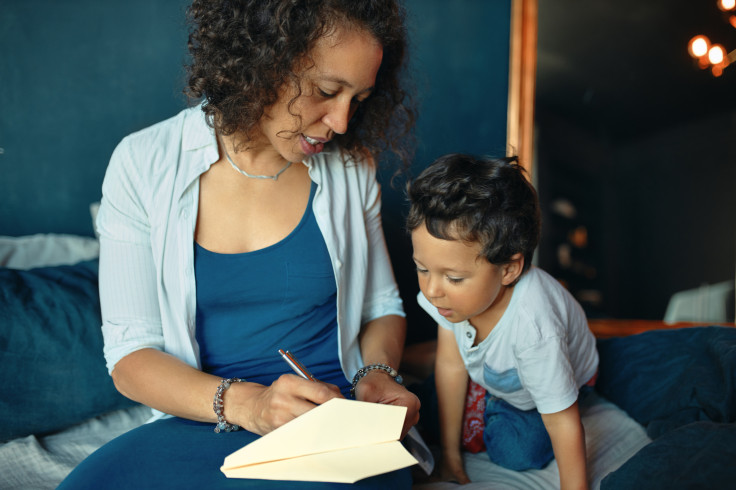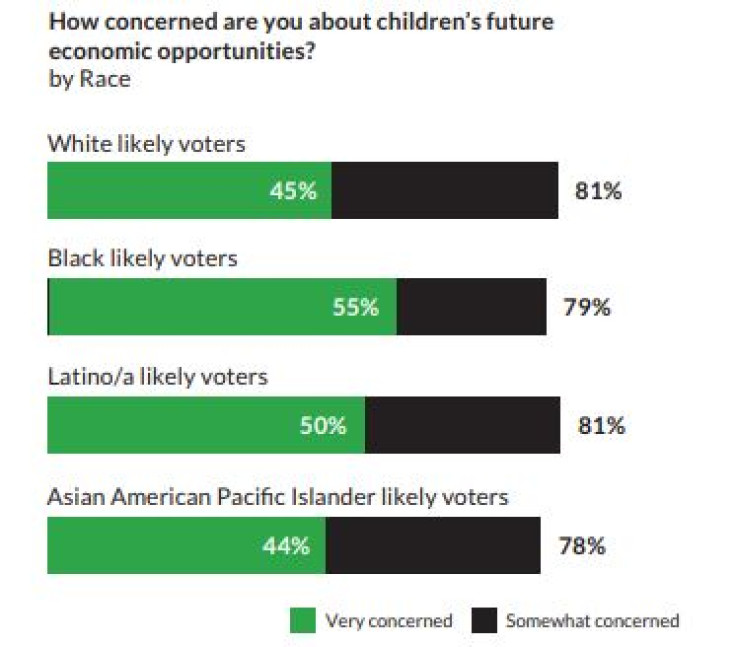
Most Latino voters, usually strong believers of the "American dream," now hold a negative outlook on the state of families across the U.S., highlighting the mental health crisis for their children as a more pressing issue than their White counterparts, according to a study released on Monday by an independent nonprofit organization.
The research, based on a fresh set of surveys, including one targeting likely 2024 voters and another focused on kids and teens aged 12–17, was conducted in English and Spanish in November 2023 by Lake Research Partners and Echelon Insights on behalf of Common Sense Media.
When asked about the current state of families across the nation, overall likely voters in the 2024 elections do not feel strongly positive about the American Dream, as revealed by the survey. Only 41% rated it positively, with 11% saying it is "excellent" and 30% answering "good." In contrast, 58% described it as "just fair" (39%) or "poor" (19%).
Latino voters, on track to represent 20% of the U.S. population, echoed similar sentiments, with a higher proportion expressing negative views (56%) compared to positive ones (43%).
In contrast, Black voters and Asian American and Pacific Islander voters stood out for their more optimistic outlook, with 54% and 60% rating it as "excellent" or "good," respectively.
The study highlighted a gender gap on this topic, with women feeling even more negative; 61% of them answered "just fair" or "poor," compared to 54% of men. Additionally, the study found "a partisan divide," with Republicans feeling more negative (64% "just fair" or "poor") compared to 51% of Democrats feeling that way.
"What the surveys show is that everyone—Democrat and Republican, parent and nonparent—has concerns for the future of America's children. And more importantly, there are similarly bipartisan desires for the government to take action to better support kids and families," concluded Common Sense Media.

The survey also delved into the views of likely voters on politicians and elected officials, asking if they were "reflecting the needs, desires, and experiences of younger people in this country." About 43% answered "not well at all," with Republicans feeling more negatively (48% "not well at all" for both groups, compared to 37% of Democrats).
Interestingly, voters of color were somewhat less negative about elected officials, particularly Black voters (31% "not well at all"). 37% of Latino voters and Asian American and Pacific Islander gave the same answer, while more White voters saw this group negatively, with 47% answering "not well at all".
Another salient aspect of the survey has to do with Latino voters' concern regarding the economic prospects for children, which mirrors the dissatisfaction levels observed among White voters. In both cases, approximately 81% of respondents expressed varying degrees of concern, though Latinos exhibited a more pessimistic outlook. Around 50% said they felt very concerned, while 45% of White voters said so.
Common Sense Media underscored: "For all voters, kids and families are intrinsically connected to concerns about the economy. There is broad support for improving education, and mental health is squarely on their agenda. Contrary to conventional wisdom, voters across party lines favor investment in kids and families, see a role for government, and think that politicians are failing to deliver."
Latino Voters: Strong Concerns about Mental Health Crisis for Their Children
When likely voters were asked to identify the issues most important to them concerning the health and well-being of children, the top concerns were as follows:
- Gun violence (20% of likely voters selected this as one of their two top concerns)
- Social media negatively impacting children's well-being (18%)
- Child poverty (18%)
- Children struggling with mental health (16%)
According to one of the surveys, mental health is even more top of mind for voters of color, with the following percentages:
- 24% among Asian American and Pacific Islander voters
- 23% among Black voters
- 20% among Latino voters
- 14% among White voters.
Asian American and Pacific Islander kids and teens are more likely than their peers to attribute the mental health crisis to social media (27% compared to 21% among White kids/teens, 16% among Black kids/teens, and 21% among Latino kids/teens). White (19%) and Latino (19%) kids and teens are slightly more likely than Black (14%) and Asian American and Pacific Islander (11%) kids and teens to say that bullying and discrimination are main causes of the mental health crisis.
The negative impact of social media on mental health is a top concern across party identification, with 19% of Democrats, 19% of independents, and 18% of Republicans volunteering social media/technology/screen time as a main cause of today's mental health crisis.
© 2024 Latin Times. All rights reserved. Do not reproduce without permission.







